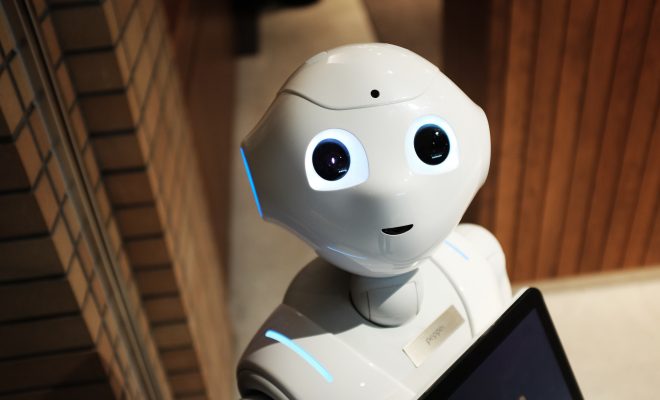Fourteen year later, we still fear the movement towards Artificial Intelligence (AI). Yes, I agree in the scene of I, Robot, when the robot’s bodies turned from green to red and their faces immediately contoured into evilness, I too was a disbeliever of AI’s. However, we are now over a decade later invested in the evolvement of Artificial Intelligence and its beneficiaries in education are worth looking into. Throughout the years there has been progression of technology in our education system, here are some of potential achievements that can occur with the incorporation of AI’s inside our classroom.
One of the barriers teachers as a whole from elementary to college deal with are grading papers. We love as teachers to give assignments, but when it comes to grading that motivation somehow escapes. Let’s imagine, that on our to-do list we no longer have to jot down, “grade papers”. Currently, AI technology allows them to automate grading for multiple choice, and the way that AI’s work is that through time they become capable of developing sets of skills, such as “grader”. This would alleviate the multiple roles that we teachers as a whole already are mandated to do.
Not only can they aid in supporting teachers, but they are a great asset to helping with students. The ratio of student to teacher (depending on the district) are obscene, it is no longer feasible to give adequate attention to each student per day. AI’s have the capability to process data and determine where the student’s areas of strengths and weakness are. Then they generate individualized reports that create a 1:1 study guide for that students, instead of a general review. Alongside the support of students, AI’s can be an aid for students with disabilities. With the incorporation of laws such as Least Restrictive Environment, we see the integration of students with disabilities in “general” education, now more than the decades prior. AI’s can put forth to help assist with students with special needs by providing adaptive material to them. Recent studies have shown the positive results for AI’s teaching students with social skills. [See study studies.]
The step towards artificial intelligence is the direction we as educators need to take, this role that they take on allows us as educators to move into the role of classroom facilitator. In the year 2018, we no longer are the lecturer standing in front of the room, having students sit row by row as they copy and memorize material for 9 months, rather we become the learning motivator that sparks intrinsic motivation for learning, that later on will open windows of opportunities for students of all backgrounds. As well as, at the same time, AI’s can provide having a personalized tutor for students, having the capability to identify areas of weakness for your classroom, or individualized student, and overall holding teaching accountable and strengthening best teaching practices. Also remember artificial intelligence is in no way shape or form going to replace teachers altogether, however, it is a huge possibility that it will reshape the way teachers teach and students learn.
Reference:
1., & 3. (2018, May 27). 7 Roles for Artificial Intelligence in Education. Retrieved from https://www.thetechedvocate.org/7-roles-for-artificial-intelligence-in-education/
Holz, S. (2017, July 19). How AI is changing special education. Retrieved from http://blog.neolms.com/ai-changing-special-education/
